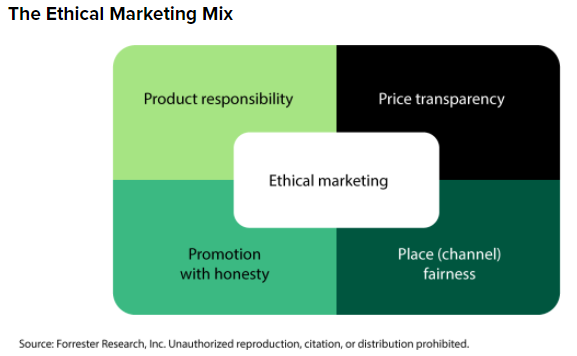In the world of advertising, the use of incentives has become a common strategy to capture the attention of consumers. But while these incentives may seem harmless on the surface, there is a growing debate around the ethical implications they carry. This article explores the potential ethical considerations that arise when using incentives in advertising and delves into the impact they have on consumer behavior and decision-making. From the influence on purchasing decisions to the potential exploitation of vulnerable populations, this discussion sheds light on an important aspect of advertising that warrants further examination.
Ethical Considerations
Defining Ethical Considerations
Ethical considerations in advertising refer to the moral principles and values that guide the use of incentives and promotional tactics in marketing campaigns. These considerations take into account the impact of advertising on consumers, society, and the environment, aiming to ensure fairness, transparency, and honesty in promotional efforts.
Importance of Ethical Considerations in Advertising
Ethical considerations play a crucial role in advertising as they help maintain trust between businesses and consumers. When companies adhere to ethical standards, they build a positive reputation and foster long-term customer relationships. Ethical advertising also contributes to a fair marketplace, where consumers are well-informed and empowered to make rational purchase decisions.
Types of Incentives
Financial Incentives
Financial incentives, such as discounts, cashback offers, or reduced prices, are commonly used in advertising to attract customers. These incentives provide financial benefits to consumers, motivating them to consider a purchase or try a product or service. While financial incentives can be effective in driving sales, ethical considerations arise when the pricing and discounting strategies mislead or deceive consumers.
Discounts and Coupons
Discounts and coupons are popular incentives used by businesses to drive customer loyalty and increase sales. Offering reduced prices or special discounts can create a sense of urgency and exclusivity, encouraging consumers to make a purchase. However, ethical considerations arise when discounts are falsely inflated, making consumers believe they are obtaining a better deal than they actually are.
Freebies and Giveaways
Freebies and giveaways are promotional incentives commonly used to entice consumers. Providing a complimentary product or service can generate interest and create a positive association with a brand. However, ethical considerations arise when freebies are used as a bait-and-switch tactic, where the promised complimentary item is not truly provided, or when they lead to excessive waste or environmental harm.
Rewards and Loyalty Programs
Rewards and loyalty programs are designed to incentivize repeat purchases and customer loyalty. By offering exclusive benefits, such as points, discounts, or personalized perks, businesses aim to retain customers and increase their lifetime value. Ethical considerations arise when rewards and loyalty programs are misleading, manipulative, or when they collect excessive personal data without adequate consent or safeguards.

This image is property of assets.website-files.com.
Effectiveness of Incentives
Impact on Consumer Behavior
Incentives can have a significant impact on consumer behavior. They can influence purchase decisions, attract new customers, and encourage repeat purchases. By appealing to consumers’ desire for financial gain or exclusive benefits, incentives can motivate action and create a sense of urgency. However, it is important to consider the potential manipulative effects of incentives on vulnerable consumers and to ensure that their use is transparent and respectful.
Short-term vs Long-term Effects
While incentives can produce short-term gains for businesses, it is essential to evaluate their long-term effects. Short-term gains may come at the expense of long-term customer relationships and brand reputation if incentives are not implemented ethically. Businesses need to balance the immediate boost in sales with the potential consequences of undermining trust or relying solely on incentives, as consumers may become desensitized or suspicious of promotional tactics over time.
Balancing Benefits and Harms
Potential Benefits
Incentives can offer various benefits to both businesses and consumers. From a business perspective, they can increase sales, improve customer satisfaction, and strengthen brand loyalty. For consumers, incentives can provide financial savings, exclusive access to products or services, and a sense of appreciation from the brand. When used ethically, incentives create a win-win situation where both businesses and consumers benefit.
Potential Harms
While incentives can provide benefits, ethical considerations arise from the potential harms they may cause. For example, deceptive pricing tactics can mislead consumers and erode trust. Overreliance on incentives may devalue the quality or integrity of products or services, leading to negative customer experiences. Additionally, excessive use of incentives can encourage impulsive buying behaviors, contributing to financial difficulties or an unhealthy focus on material possessions.
Ethical Evaluation
To strike a balance between benefits and harms, businesses should conduct an ethical evaluation of their incentive programs. This evaluation should consider factors such as transparency, honesty, fairness, environmental impact, and the potential effects on vulnerable populations. By taking a proactive approach to address these ethical considerations, businesses can ensure that incentives contribute to a positive and sustainable customer experience.

This image is property of fastercapital.com.
Transparency and Honesty
Full Disclosure of Incentives
Transparency is key in ethical advertising practices. Businesses should clearly disclose the terms and conditions of any incentives offered, ensuring that consumers are fully informed about the benefits and any associated obligations. This includes providing accurate information regarding discounts, rewards, and potential limitations. When businesses are transparent about their incentives, consumers can make informed decisions and trust in the fairness of promotional efforts.
Avoiding Deceptive Practices
Honesty is fundamental to maintaining ethical advertising practices. Businesses should refrain from using deceptive practices to lure or mislead consumers. This includes avoiding false or exaggerated claims, misleading pricing strategies, or hidden costs. Instead, businesses should focus on providing accurate and reliable information to consumers, enabling them to make well-informed choices based on their own needs and preferences.
Vulnerability and Exploitation
Targeting Vulnerable Populations
Ethical advertising requires special consideration for vulnerable populations. Marketing tactics that target children, the elderly, or individuals with limited decision-making capacity should be carefully evaluated to avoid exploitation. Businesses should ensure that incentives are not designed to manipulate or take advantage of vulnerable customers, but rather provide genuine value and benefit without compromising their well-being.
Avoiding Exploitative Tactics
To uphold ethical standards, businesses should actively avoid exploitative tactics that compromise consumer autonomy and well-being. This includes refraining from using emotional manipulation or fear-based advertising to coerce consumers into making purchases. Businesses should prioritize respect for consumer autonomy, ensuring that incentives are designed to provide genuine value and benefit rather than exploiting vulnerabilities for short-term gain.
Psychological Manipulation
Understanding Consumer Psychology
Ethical advertising practices require an understanding of consumer psychology to avoid manipulative tactics. Businesses should be aware of the cognitive biases that influence consumer decision-making and use this knowledge responsibly. By recognizing and respecting the psychological vulnerabilities of consumers, businesses can create advertising campaigns that empower consumers and facilitate rational decision-making.
Manipulative Advertising Techniques
While some advertising techniques may be effective in driving sales, they can also be manipulative if used unethically. Tactics such as scarcity marketing, social proof, or emotional appeals should be carefully evaluated to ensure they are not misleading or coercive. Ethical advertising prioritizes providing accurate information, fostering genuine connections with consumers, and avoiding tactics that exploit their cognitive vulnerabilities.
Societal Impact
Encouraging Materialism
Ethical considerations extend beyond the individual level to the impact of advertising on society as a whole. Incentives that perpetuate materialistic values and encourage excessive consumption can contribute to societal issues such as overconsumption, waste, and environmental damage. Ethical advertising practices should strive to promote sustainable consumption patterns, responsible product choices, and a balanced approach to material possessions.
Environmental and Social Consequences
Incentives should also be evaluated for their environmental and social consequences. Practices such as excessive packaging, single-use products, or unethical sourcing can harm the environment and exploit vulnerable communities. Ethical advertising should prioritize environmentally friendly practices, fair trade, and social responsibility, ensuring that incentives contribute to positive societal outcomes and align with sustainable development goals.

This image is property of go.forrester.com.
Legal and Regulatory Frameworks
Advertising Standards and Guidelines
Legal and regulatory frameworks play a crucial role in guiding ethical advertising practices. Advertising standards and guidelines established by regulatory bodies ensure that businesses adhere to ethical principles and avoid deceptive or unfair practices. These frameworks provide a foundation for businesses to operate ethically and protect consumers from harmful advertising tactics.
Laws against Unfair Practices
Laws against unfair practices, such as false advertising or deceptive marketing, serve as a deterrent to unethical behavior. They establish legal consequences for businesses that engage in manipulative or exploitative advertising tactics. Compliance with these laws is essential to ensure that incentives and promotional efforts are conducted in a fair and honest manner, benefitting both businesses and consumers.
Conclusion
Weighing the ethical considerations when using incentives in advertising is crucial for businesses to establish trust, maintain long-term customer relationships, and contribute to a fair marketplace. By defining and understanding ethical considerations, businesses can make informed decisions about the type and implementation of incentives in their advertising efforts. Striving for transparency, avoiding manipulative practices, and considering the societal and environmental impacts of incentives are key to achieving ethical advertising practices that benefit both businesses and consumers.

This image is property of a.storyblok.com.


